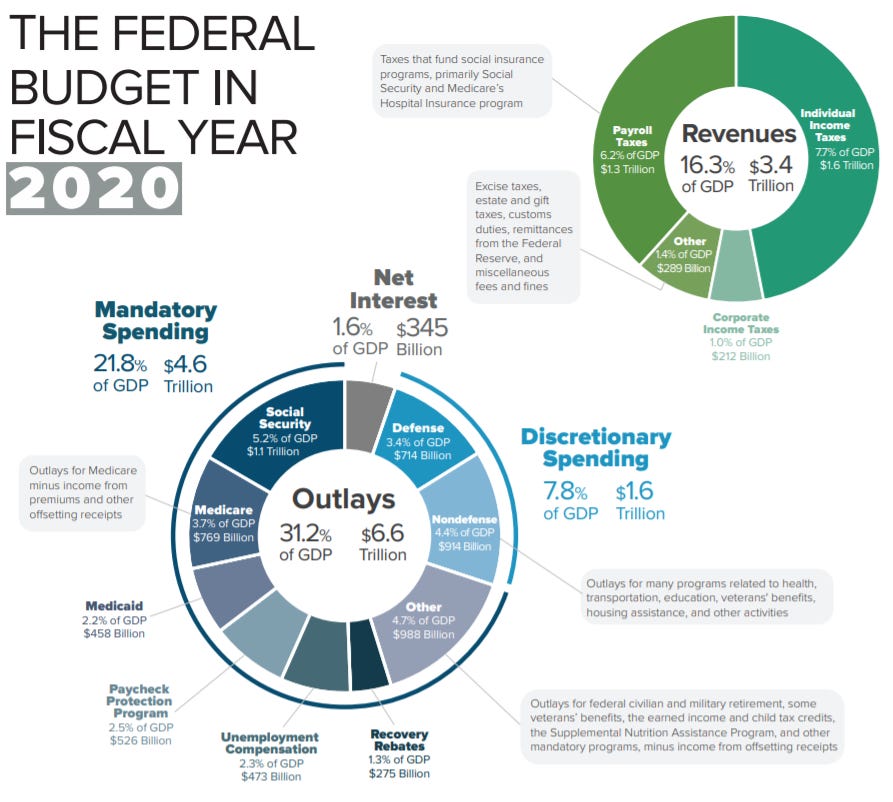Wait, This Whole Time We Could Have Solved Climate Change For $369 Billion?
OK, not "solved it," but made some pretty historic progress!
Over the weekend the US Senate passed the Inflation Reduction Act, pulling victory from the jaws of defeat. The bill is the “the most significant climate bill ever passed by Congress.”
“No law has ever made such a big dent in U.S. emissions,” Robinson Meyer writes in The Atlantic. “or cut them as rapidly.”
It includes $369 billion in tax incentives for green energy and other climate actions.
It is not an understatement to say that this surprising development—which looked almost unimaginable just a few weeks ago—has been greeted by climate scientists with unprecedented enthusiasm.
“A total game changer” is how one expert put it to Rebecca Leber at Vox.
The bill legislation, which is set to pass the House in the coming days, is projected to reduce carbon emissions annually by 40% off the peak 2005 levels by 2030, and will put the US “within shouting distance” of achieving its overall goal of reducing emissions by 50% by 2030:
"While more action across other levels of government will be required to cut emissions by 50%-52% below 2005 levels, the Senate package represents an important and historic step forward," the Rhodium Group, an environmental and energy think tank, wrote in its analysis.
“This is a very big deal,” writes Paul Krugman. “The act isn’t, by itself, enough to avert climate disaster. But it is a huge step in the right direction and sets the stage for more action in the years ahead.”
This is all wonderful. When Manchin and Sinema blew up Build Back Better last year, most people assumed this was never going to happen. When Manchin appeared to kill a skinnier bill just a few months ago, even the optimists left it for dead.
With Democrats poised to lose Congress in November, failing to pass a climate bill now would basically guarantee the United States would take no significant climate action for the foreseeable future.
I am not a climate expert or a wonk, but I have worked next to many climate experts and read many wonks, and I have absorbed various vibes from them through osmosis over the years.
Sometimes there has been optimism but mostly the entire movement has been about a continuing series of failures to address what is probably one of the most pressing issues of our time.
To see that flip so profoundly because of one bill is wonderful and heartening. As Krugman says, it alone isn’t enough to meet our commitments to the Paris Accords, but it gets us almost there and makes it highly likely that smaller changes and continued technological improvements will close the gap.
I have to say though that it is almost surreal to think that this much change in outlook can be achieved with the relatively paltry sum of $369 billion.
$369 billion over ten years is not a significant amount of money for the US government.
Annually, it’s about as much as the budget for the State Department. It’s less than half what we spend on the Department of Labor.
In 2020, the federal government spent $6.6 trillion. It spent a little more than that in 2021 and expects to spend a little less in 2022.
Most of that is mandatory spending for things like Social Security and Medicare. A big chunk is national defense. Then there is a bunch of discretionary spending to fund things like the department of education.
All of these things are important, some are very important. Cutting things is hard and making spending priorities is a definitionally fraught process. But my point is: only people deeply involved in public policy give one shit about a number as small as $37 billion a year in the federal budget.
This is not an amount of money that is so significant it needs to crossover beyond the realm of Politico Pro subscribers to Good Morning America watchers.




